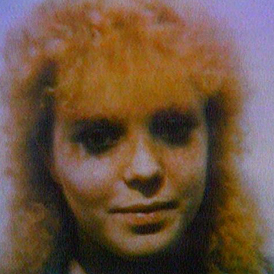Inquiry into collapse of £30m police corruption trial
As an independent inquiry launches into the role of the prosecution service in the collapse of the biggest police corruption trial for years, Simon Israel speaks to a victim of the case.
It was believed to be the one of the biggest trials of former police officers in British legal history and may have cost the taxpayer up to £30m.
But last year, the case collapsed after the court was told that some files had been destroyed. This led the judge to rule that a fair trial was no longer possible.
In the last few hours it has emerged that some of the documents which were believed to have been destroyed have now been recovered by the Independent Police Complaints Commission.
Now the director of public prosecutions, Kier Starmer, has opened a new independent inquiry into what happened, asking inspectors to look at whether the crown prosecution service’s system for handling large amounts of evidence has broken down.
Eight former police officers from South Wales Police were acquitted last December over a murder investigation which led to miscarriages of justice and the wrongful imprisonment of three men.
That’s all I want, justice. I just want the public to hear exactly what is happening in this country when it comes to the police. Stephen Miller, wrongly convicted of murder in 1990
The officers were accused of fabricating evidence and perverting the course of justice. Their evidence led, in 1990, to the wrongful conviction of Stephen Miller, Yusef Abdullahi and Tony Paris for murdering Lynette White, 20, who had worked as a prostitute in Cardiff before her death.
Two members of the public were also accused of deliberately lying on oath.
Speaking to Channel 4 News Home Affairs Correspondent Simon Israel, one of the victims of the miscarriage of justice – Stephen Miller – said that he felt he had been “fighting for his life” ever since his wrongful conviction.
“Every day I wake up and it’s an effort to get out of my bed because I don’t think about nothing apart from this case…I didn’t do anything but I’ve got that stigma. This is my cross that I have to carry for the rest of my life,” he said.
He added that, at the time of the trial, he believed he would get justice.
“That’s all I want, justice. I just want the public to hear exactly what is happening in this country when it comes to the police…Seeing those officers in the dock, it gave me a little bit of hope in justice, in the British legal system – yeah there is something happening here, someone is listening. Now it is kaput. I have no faith – no faith.”
Miscarriage of justice
The three men – who came to be known as the “Cardiff Three” – were freed two years after being found guilty when their convictions were quashed by the Court of Appeal. But Mr Miller told Channel 4 News the conviction had had a huge impact on his life.
“I’m stuck, I’m really stuck,” he said. “It takes a lot for me to be here. It really takes a lot for me to even be filmed. Because all I want to do is just hide but what can you do? You just have to stick it out and tell everybody how you feel.”
While the men were released in 1992, it was only just over a decade later that the real killer was discovered. In 2003, 15 years after the murder and using new DNA evidence, Jeffrey Gafoor was arrested, confessed to killing Lynette White and was imprisoned. The guilty man later branded the entire trial of the so-called “Cardiff Three” – Miller, Abdullahi and Paris – a “miscarriage of justice”.
After Gafoor’s imprisonment, the South Wales Police opened an inquiry to establish how the original murder investigation went so badly wrong. This eventually led to the trial of the eight police officers and two civilians in 2011.
At the trial, Mr Miller said he had been trying to forget the “nightmare” of the wrongful conviction for 22 years. But that nightmare continued as he saw the trial collapse. With the judge ordering an end to the trial, all 10 defendants were cleared.

At the time, Channel 4 News Home Affairs Correspondent Simon Israel said: “This is not just about costs, which runs into millions of pounds. What’s more worrying is police officers walking away, without a trial even completing its course, and without a jury delivering a verdict.
“It raises questions about whether the authorities can handle large scale cases going back many years, especially around corruption.”
It is in a bid to tackle concerns of that nature from the wider public that the new inquiry has been set up by the director of public prosecutions, Keir Starmer.
The new review, which will examine how the Crown Prosecution team dealt with the case and whether it can improve, will be lead by Her Majesty’s Crown Prosecution Service Inspectorate.
HM Chief Inspector Michael Fuller said: “It is important that the public can have confidence in the way the Crown Prosecution Service conducts its cases and the inspectorate will examine the issues with the utmost thoroughness.”
Under particular consideration will be guidance on the practice of disclosure, under which the lawyers on one side of a case have a duty to share evidence with the legal team of their opponents.
South Wales Police has also referred the matter to the Independent Police Complaints Commission, which also continues to investigate.